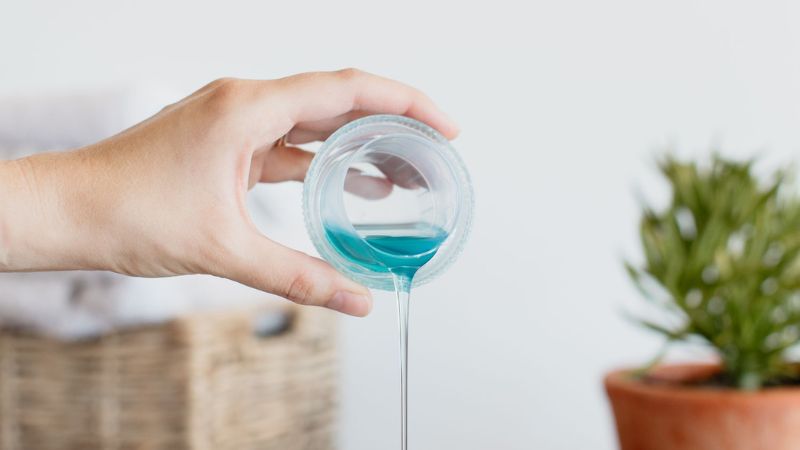Blog
Can Laundry Detergent Go Bad? A Complete Guide
Laundry detergent is an essential household item, helping to keep clothes fresh, clean, and stain-free. But if you’ve had a bottle or box sitting on your laundry shelf for a while, you may be wondering, “Can laundry detergent go bad?” Daily Wash will dive into the shelf life, storage recommendations, and key signs of expired or ineffective detergent to ensure you’re using it safely and effectively.
Does Laundry Detergent Expire?
Yes, like many household products, laundry detergent can lose its effectiveness over time. While it may not develop mold or spoil in the same way that food does, laundry detergent undergoes chemical changes as it ages, which can affect its ability to clean your clothes. Factors such as detergent type (liquid, powder, or pods) and storage conditions play a significant role in its longevity.
Types of Laundry Detergent and Their Shelf Life
- Liquid Laundry Detergent: Liquid detergent typically has a shelf life of 6 months to 1 year after opening. This is due to the water content in the formula, which can lead to separation and reduced cleaning power over time.
- Powdered Laundry Detergent: Powdered detergent can last up to 1 to 2 years if kept dry. However, once exposed to moisture, it may clump and lose effectiveness.
- Laundry Pods: Laundry pods usually have a shorter shelf life of about 6 months due to the water-based liquid inside the pods. Their plastic covering may also degrade over time, causing them to leak or dissolve prematurely.
Signs Your Laundry Detergent Has Gone Bad
Using old laundry detergent might not produce harmful effects, but it can lead to poor cleaning results. Here are some signs that your laundry detergent may have reached the end of its shelf life:
- Separation: Liquid detergents may separate or appear watery if they’ve been sitting for a while. Shaking the bottle may help, but if it remains separated, it might be less effective.
- Clumping: Powder detergent that has absorbed moisture can develop clumps, making it harder to dissolve in water. This can lead to residue on clothes and reduced cleaning power.
- Strange Smell: Detergent that smells off or has an unusual odor could be a sign that its ingredients have started to break down. A sour or stale smell indicates it may no longer be effective.
- Color Changes: For liquid detergent, a change in color can signal that the product has been affected by temperature fluctuations or light exposure, leading to reduced efficacy.
- Leaky or Damaged Pods: If laundry pods have leaks, cracks, or appear misshapen, they may have degraded due to heat or pressure. Pods that are sticky or don’t dissolve properly should be discarded.
Proper Storage Tips for Extending Laundry Detergent’s Shelf Life
Storage plays a critical role in maintaining the effectiveness of laundry detergent. Here are some essential tips:
- Keep it in a Cool, Dry Place: Excessive heat or humidity can shorten the shelf life of all types of detergent, especially powder. Aim for a dry, cool storage area to prevent clumping or separation.
- Avoid Temperature Fluctuations: Temperature changes can cause ingredients in liquid detergents to separate and cause the plastic covering on pods to weaken or dissolve. A consistent temperature can help maintain the quality of your detergent.
- Close the Lid Tightly: Air exposure can lead to oxidation and drying out, so make sure to tightly close lids on bottles and boxes to prevent contamination.
- Store Pods Safely: Laundry pods are sensitive to heat and moisture, which can cause them to break down. Keep them in their original container or a tightly sealed plastic bin to avoid accidental exposure to air or light.
How to Use Old Laundry Detergent Safely
If you find an old container of laundry detergent and want to test if it’s still usable, you can try these methods:
- Test with a Small Load: Start with a small load of laundry to see if the detergent still works effectively. Watch for any signs of residue on your clothes or an unusual smell after washing.
- Combine with Fresh Detergent: If the detergent is past its prime but not showing major signs of spoilage, you can combine a small amount with a new detergent for extra cleaning power.
- Use It for Non-Clothing Items: Older laundry detergent that’s less effective for clothes may still be useful for cleaning rugs, pet bedding, or rags. Avoid using it on delicate fabrics or clothing that requires gentle cleaning.
Does Expired Laundry Detergent Still Clean Clothes?
Expired laundry detergent may still clean clothes but with reduced effectiveness. The surfactants and enzymes in laundry detergent can break down over time, meaning they won’t lift stains or remove dirt as efficiently. If the detergent has shown signs of clumping, separation, or odor changes, it’s best to replace it to ensure your laundry is getting properly cleaned.
How to Tell If Detergent Is Effective
When using older detergent, keep an eye out for these indicators of ineffective cleaning:
- Residue on Clothes: If you notice soap residue on your clothes after washing, the detergent may not be dissolving properly or cleaning effectively.
- Stubborn Stains: Old detergent may not be able to remove stains as well as fresh detergent. If stains aren’t lifting, this could signal that the detergent has lost potency.
- Odor Left on Clothes: A fresh smell on clothes indicates effective cleaning, but if odors persist, your detergent may no longer be doing its job effectively.
Can Laundry Detergent Cause Skin Irritation After Expiration?
Yes, using expired detergent, especially if it has developed mold or contains degraded ingredients, can potentially cause skin irritation. Chemical changes over time might lead to a product that irritates sensitive skin or causes an allergic reaction. If you have sensitive skin, it’s safest to discard detergent that has expired or shown signs of deterioration.
Frequently Asked Questions
Q1: Does Laundry Detergent Have an Expiration Date?
Most detergents do not have a strict expiration date printed on them, but manufacturers may provide a “best used by” or “recommended shelf life” date. Check the packaging for any guidelines to help determine how long it will remain effective.
Q2: What Happens if You Use Expired Laundry Detergent?
Using expired detergent may result in clothes that aren’t fully cleaned or leave a residue. While it isn’t dangerous, the results may be unsatisfactory, and it could potentially cause mild skin irritation for those with sensitivities.
Q3: Can You Store Laundry Detergent in the Garage?
Laundry detergent can be stored in a garage if it’s dry and insulated, but garages often experience temperature fluctuations that may degrade detergent quality. Powder detergent may absorb moisture in humid conditions, and liquid detergents may freeze in colder climates.
Q4: Can You Use Expired Laundry Pods?
If laundry pods have started to degrade or show signs of leaks, it’s best to discard them. Pods are sensitive to environmental conditions, and once compromised, they may not dissolve properly in water.
Environmentally Friendly Disposal Tips for Old Laundry Detergent
If you need to dispose of old detergent, consider these eco-friendly methods:
- Use It for Non-Laundry Cleaning: Old detergent can still be useful for scrubbing floors, cleaning bathrooms, or washing outdoor furniture. Avoid using it on plants or in the garden, as the chemicals may harm vegetation.
- Check Local Waste Disposal Guidelines: Some communities offer guidelines for disposing of household cleaning products safely. Check with local waste management facilities to see if they accept detergent.
- Recycle or Repurpose Containers: If you’re disposing of a detergent container, check if it’s recyclable, or reuse it for other storage needs.
How to Make Your Laundry Detergent Last Longer
If you want to get the most out of your laundry detergent and avoid waste, follow these practices:
- Use the Right Amount: Using more detergent than necessary can cause buildup and waste. Measure carefully to avoid overuse.
- Store in Optimal Conditions: As discussed, keep your detergent in a cool, dry area, away from direct sunlight and temperature fluctuations.
- Rotate Stock: If you buy detergent in bulk, make sure to use the older containers first to ensure nothing sits unused for too long.
Conclusion: Can Laundry Detergent Go Bad?
So, can laundry detergent go bad? In short, yes. Like many cleaning products, laundry detergent has a finite shelf life, and its effectiveness declines over time. While using expired detergent may not pose significant health risks, it’s generally less effective and may leave residue or fail to clean clothes thoroughly. By following proper storage guidelines, monitoring signs of deterioration, and using detergent within its recommended timeframe, you can ensure that your laundry routine remains effective and efficient.
With these tips, you can confidently maintain a laundry detergent supply that’s both effective and safe to use, helping to keep your clothes fresh, clean, and free of residue.


